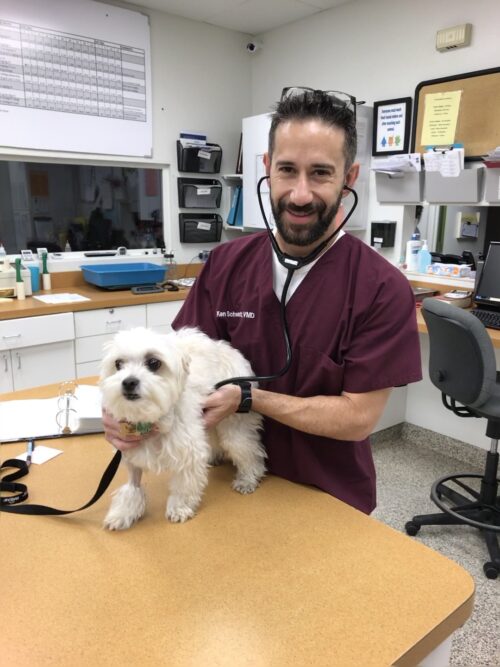
by Judy Carmack Bross
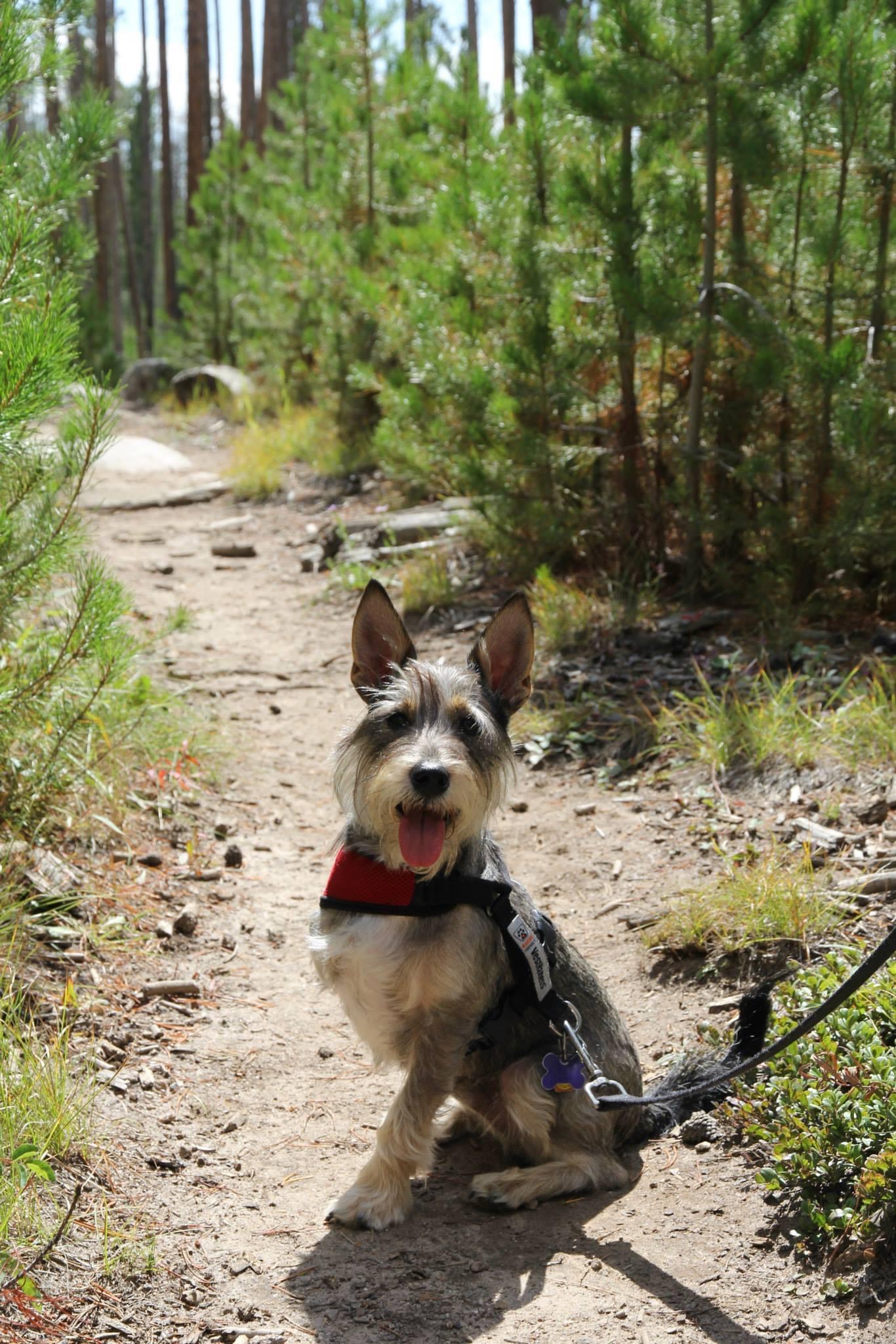 Joey on a Rocky Mountain hike
Joey on a Rocky Mountain hike
Dr. Ken Schwartz, beloved veterinarian at Chicago’s Family Pet, solves problems and emphasizes daily wellness routines crucial for both pet and parent. We asked him about COVID outcomes, winter exercise and why we should never underestimate our animals.
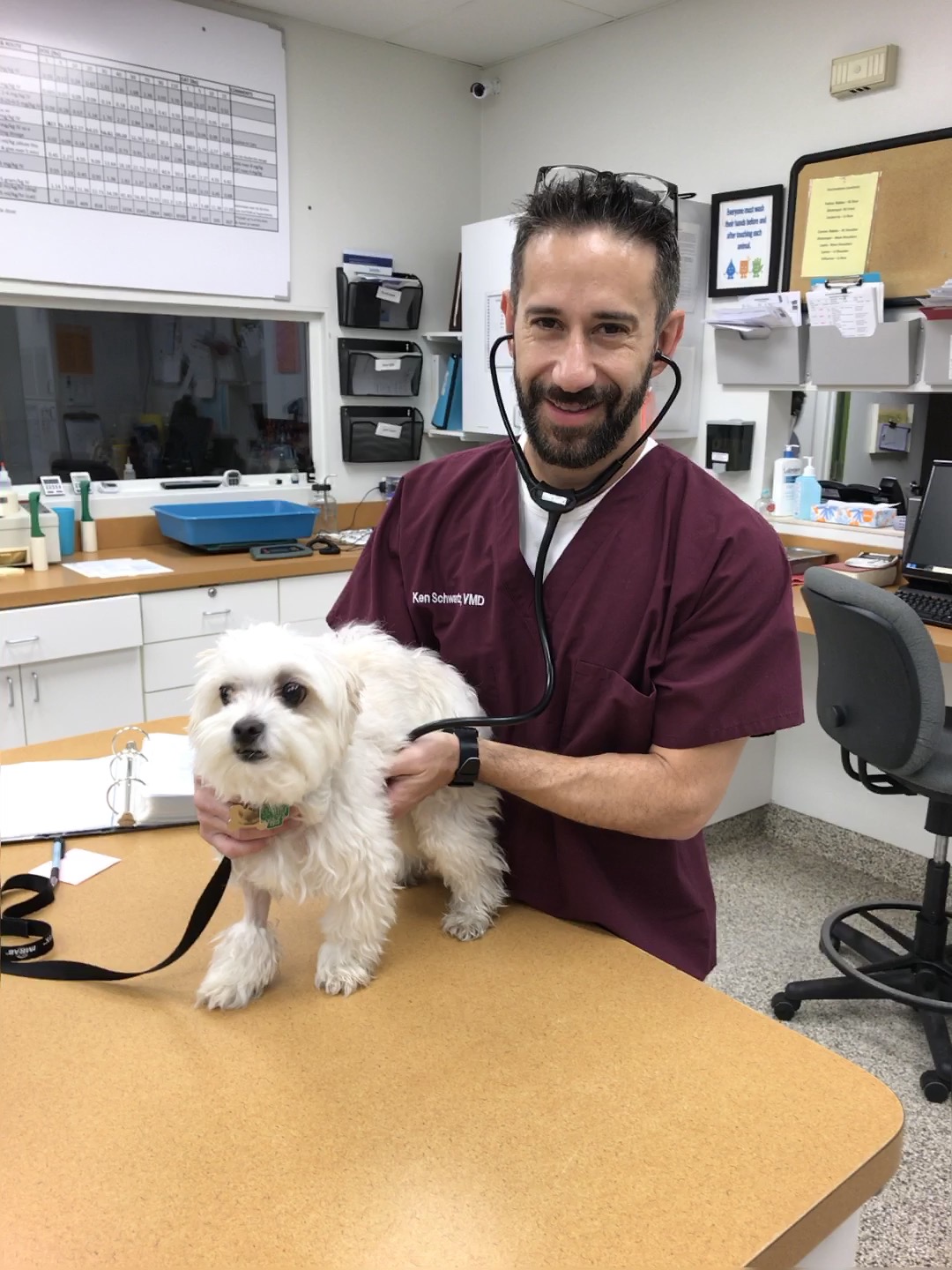
What led you to become a veterinarian?
My mom claims it all started with a Fisher-Price veterinary play set that she got me when I was very little. And then we got a Labrador Retriever puppy named Max when I was 6, who I fell in love with, and I was hooked. We didn’t have cats growing up, but I had guinea pigs, a gerbil, hermit crab, anoles, salamanders and fish. I was fascinated by animals and read about them voraciously- I had a subscription to both Zoo Books and Safari Cards which came out every month. Working with animals is really all I ever wanted to do.

Ken with Joey
What is the most intriguing part of working with cats and dogs?
I think medicine is just really intriguing. I find the science behind medicine to be fascinating. And when you can use good medicine and science to help treat a sick animal, that’s exciting.
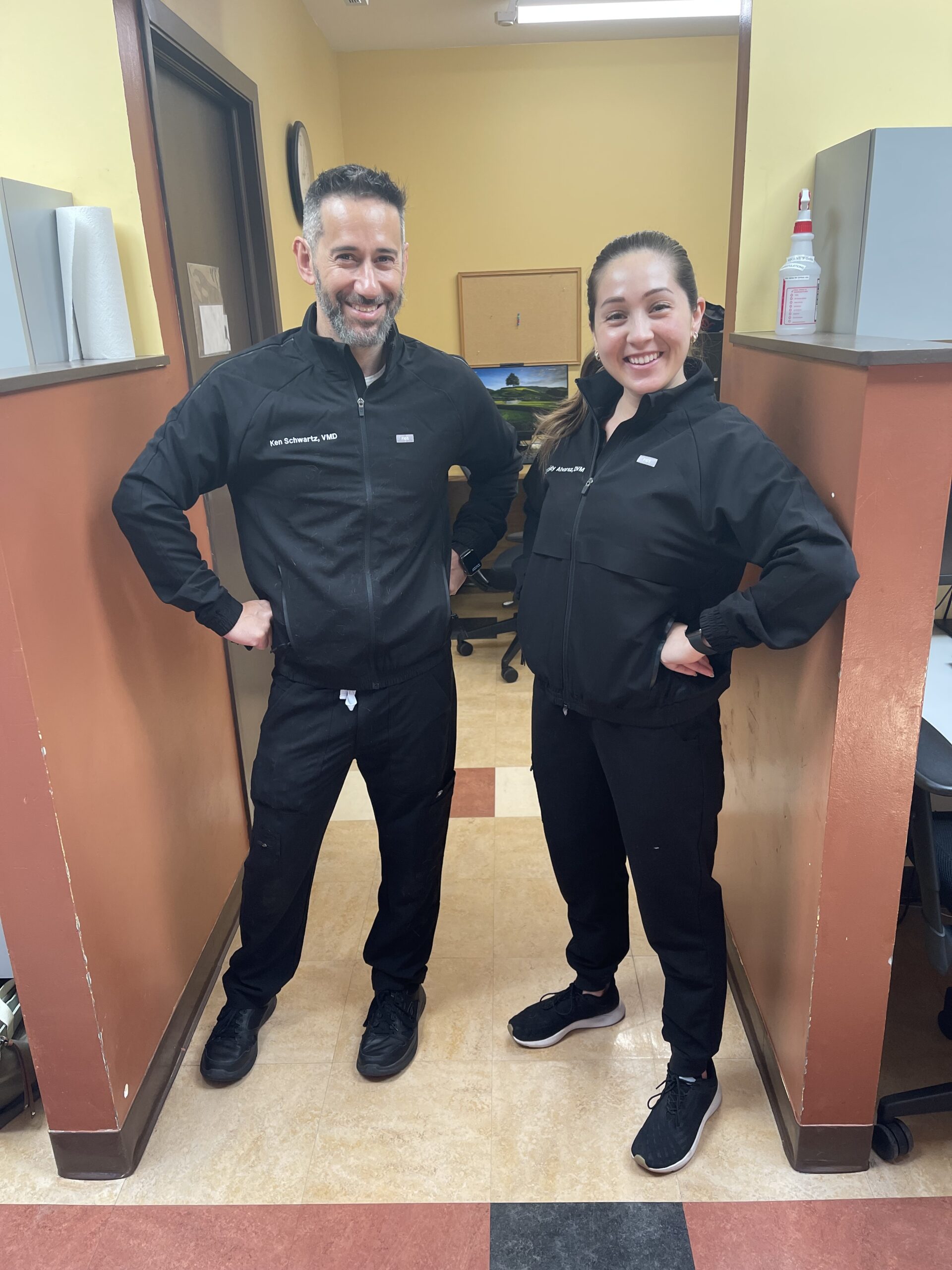
Dr. Ken Schwartz with Family Pet colleague Dr. Cassidy Alvarez
I really enjoy talking about cases- we do this a lot at the clinic. The doctors here are all very interested in what they do and really enjoy the thought process that goes into solving the riddle of a case.
If you had to define personality traits of dogs and cats, what would you say? Are we wrong to assign human qualities to our animals?
I don’t think it is any more wrong to assign human qualities to animals as it is to assign animal qualities to humans. We are animals after all. I think it is wrong to assume we are the only species to feel complex emotions.
Our pets are all just so very different, just like people. Some are extroverts, some are introverts. Some are very confident and some have a lot of anxiety. Some dogs are very cat-like and some cats are very dog-like.
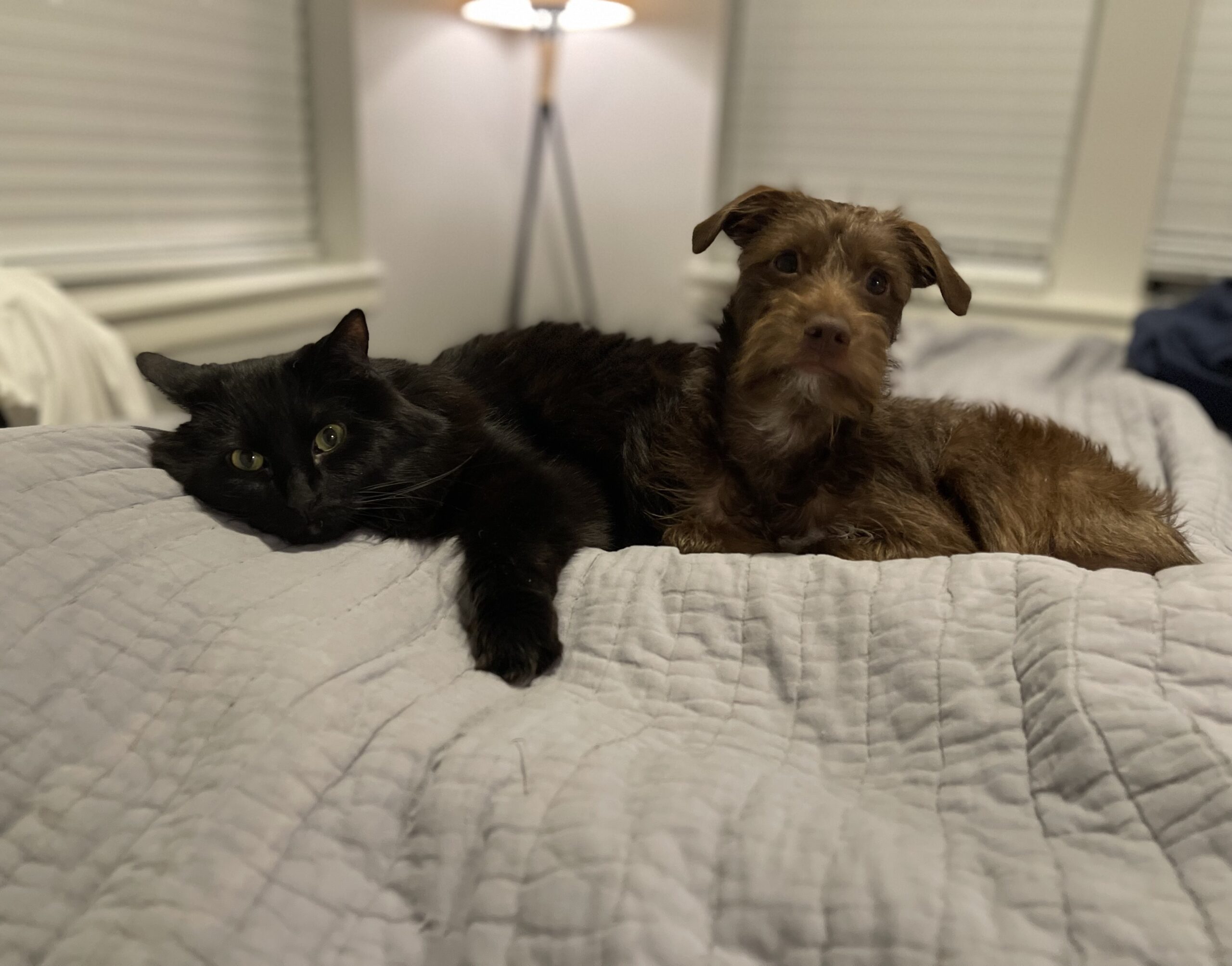
Lola and Robbie
We have a dog and a cat in our family and we call our dog Lola a “kitty-dog” because she has many cat-like qualities and we call our cat Robbie a “puppy-cat” because he often acts just like a dog.
Are you still surprised about what you learn from your four-legged clients?
How about I share a story about a TWO-legged client? I was looking back at some old photos yesterday and saw some of a cat named Pancake that I treated my first year out of vet school in 2000. He was just a few years old, and for reasons we never quite understood, he developed blood clots in his hind legs, completely stopping the blood flow. The only option was to amputate both hind legs. We assumed he would just drag himself around and would have a quiet but hopefully good life with his family, but the day after the surgery, we put him on the ground, he stood up on his front two feet and skipped across the room. We were all shocked at how effortlessly he moved. He lived in a big brownstone and his owners told me within a few weeks he was going up and down the stairs with no problem at all. He had a totally normal life. So I never underestimate what a patient can do. You just never know.
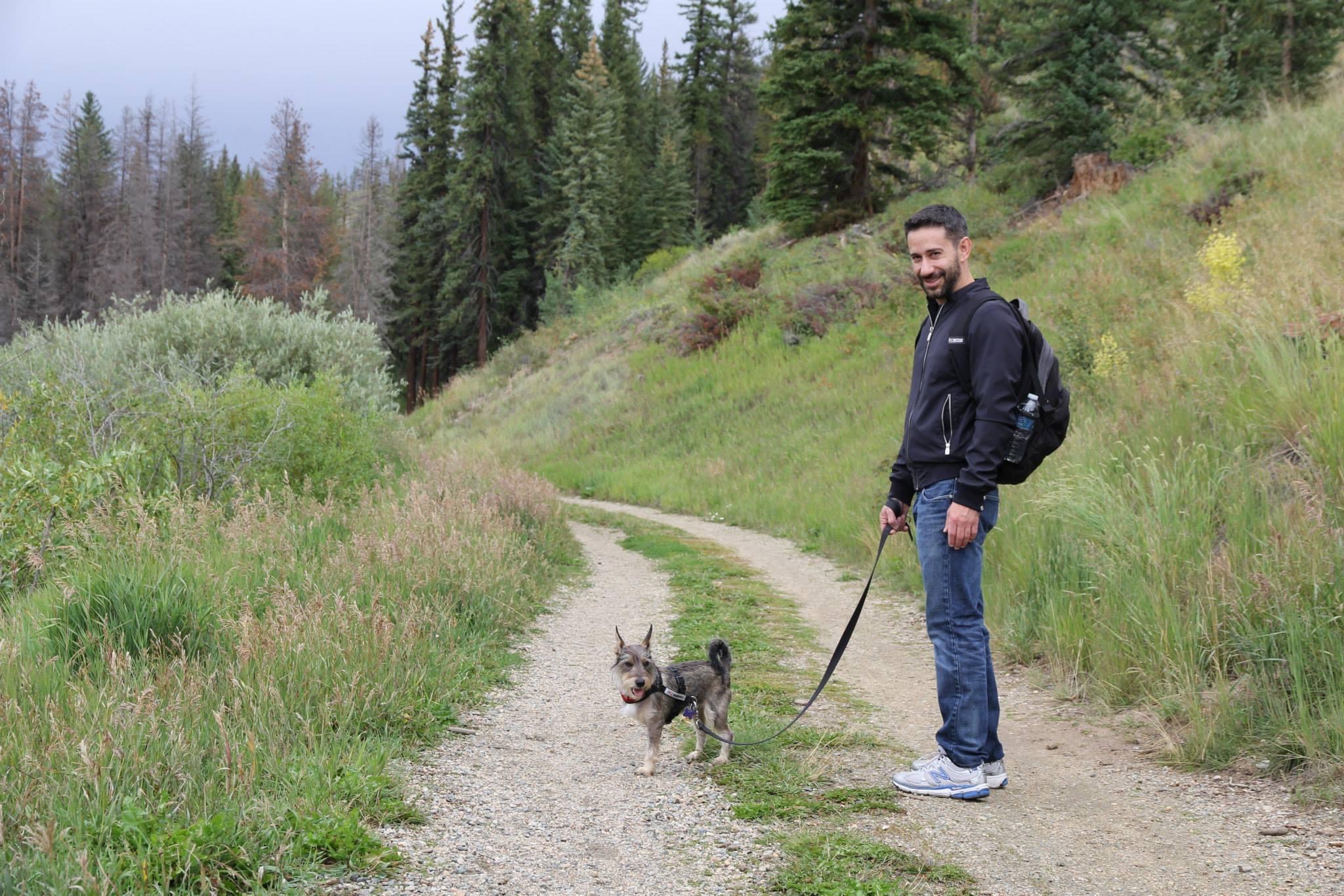
Ken with Joey, hiking in the Rockies on his three legs
Similarly, my last dog Joey was a tripod, having been hit by a car when he was a year old and losing a front leg as a result. We adopted him shortly after this happened. At the time, I again assumed we would have a quiet life together, with short walks and snuggles, but I could not have been more wrong. He was often the fastest dog at the beach, loved to wrestle with dogs 4 times his size, and pulled/led the whole way on a 5-mile hike through the Rocky Mountains. A neighbor on the street once remarked: “He’s an inspiration to us all” – which became our mantra with him. Don’t underestimate animals.
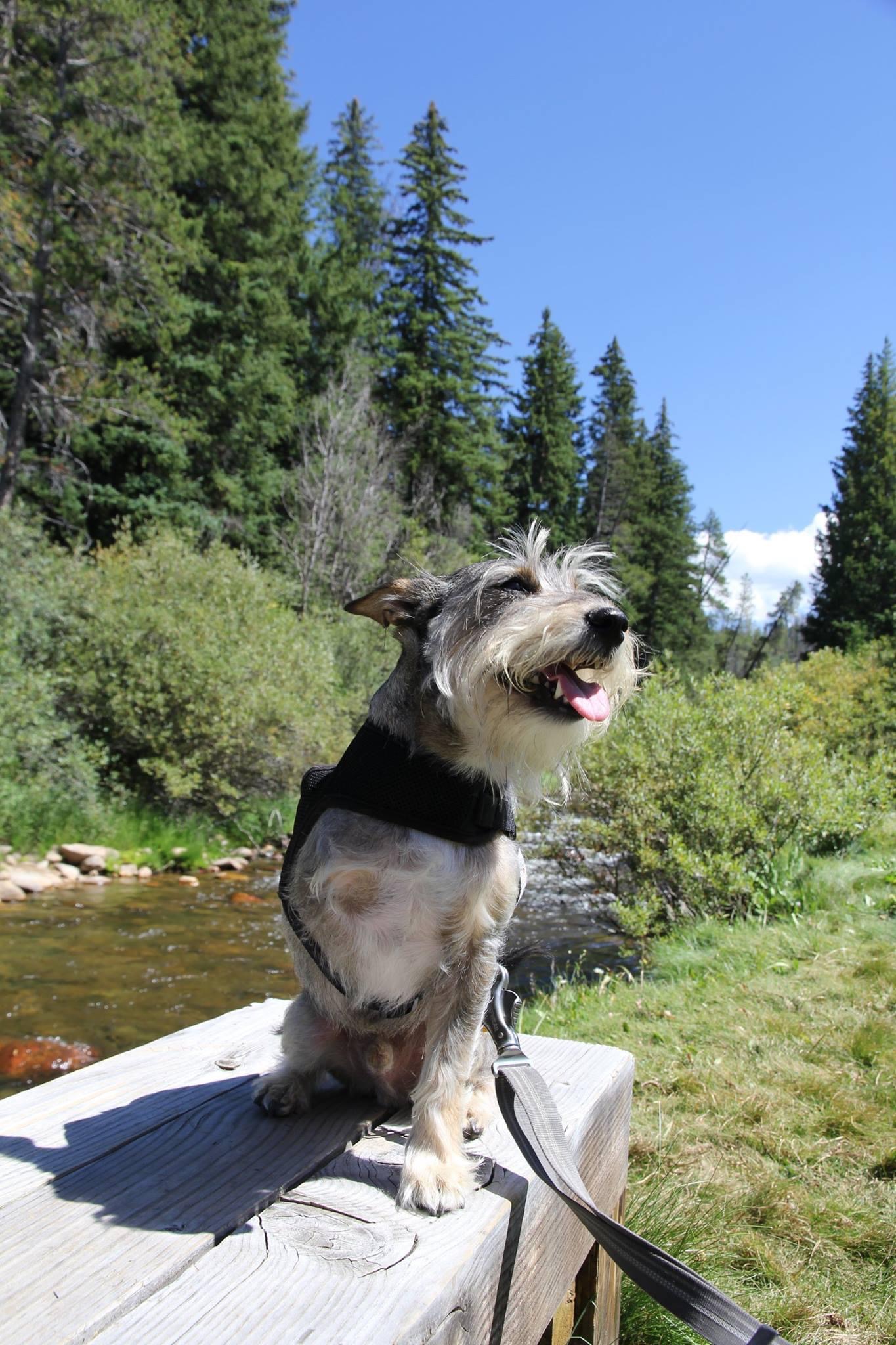
Joey enjoying Rocky Mountain hike
In the winter months, are there special things that we should be doing to optimize good health for dogs and other animals who might not get enough exercise?
I do think it is important to keep up with exercise over the winter, so active play inside the house, taking your dog to daycare, or long walks when it is not too cold outside are important.

Ken’s current pup Lola in her booties
I often wonder about dogs in the winter- were people dressing their pets up in winter coats and boots 30-40 years ago? I mean, my dog wears a sweater in the winter and booties when it is wet and slushy outside, but didn’t pets all get on just fine for tens of thousands of years without these? Would our ancestors laugh at us for putting a dog in a puffer jacket?
I have to say though, it is a lot easier walking my dog with booties on when it is cold and wet outside- she won’t walk otherwise- but am I just babying her? I don’t know the answer.

Quality time with Robbie
With the busy schedules that people have now that COVID has abated, what things should owners be sure to do daily with their pets?
Make time to spend quality time with them every day- pets are not decorative home ornaments. Walking your dog is so good for them and for owners as well – much better than just letting them out into a yard. Actively playing with your cat, even if it is just for 10 minutes a day, is great for them and will surely put a smile on your face.
Honestly, that’s really what my pets do for me – they make me smile and laugh when I’m exhausted and the weight of the world makes it hard to do so.
Are there new theories about food, exercise, treatment and longevity of pets that readers might not know about?
I think overall our pets are living longer than when I got out of vet school in 2000. It is much more common now to see 16 year old dogs and 20 year old cats. I think it is a combination of better food and better medical care. There are so many treatments now that we didn’t have then. Heart disease, for example, is a much more manageable disease is dogs and cats than it used to be. And we can effectively treat allergies without resorting to steroids, which have so many side effects.
What are some of the benefits to owning pets that you perceive?
Several studies have shown that having pets is beneficial for blood pressure. I don’t doubt it knowing how mine make me feel. Having a dog makes it more likely a person will achieve their recommended weekly exercise goals.

This article is dedicated to Sedgwick Bross 2005-2023. Photo by David Mendel



